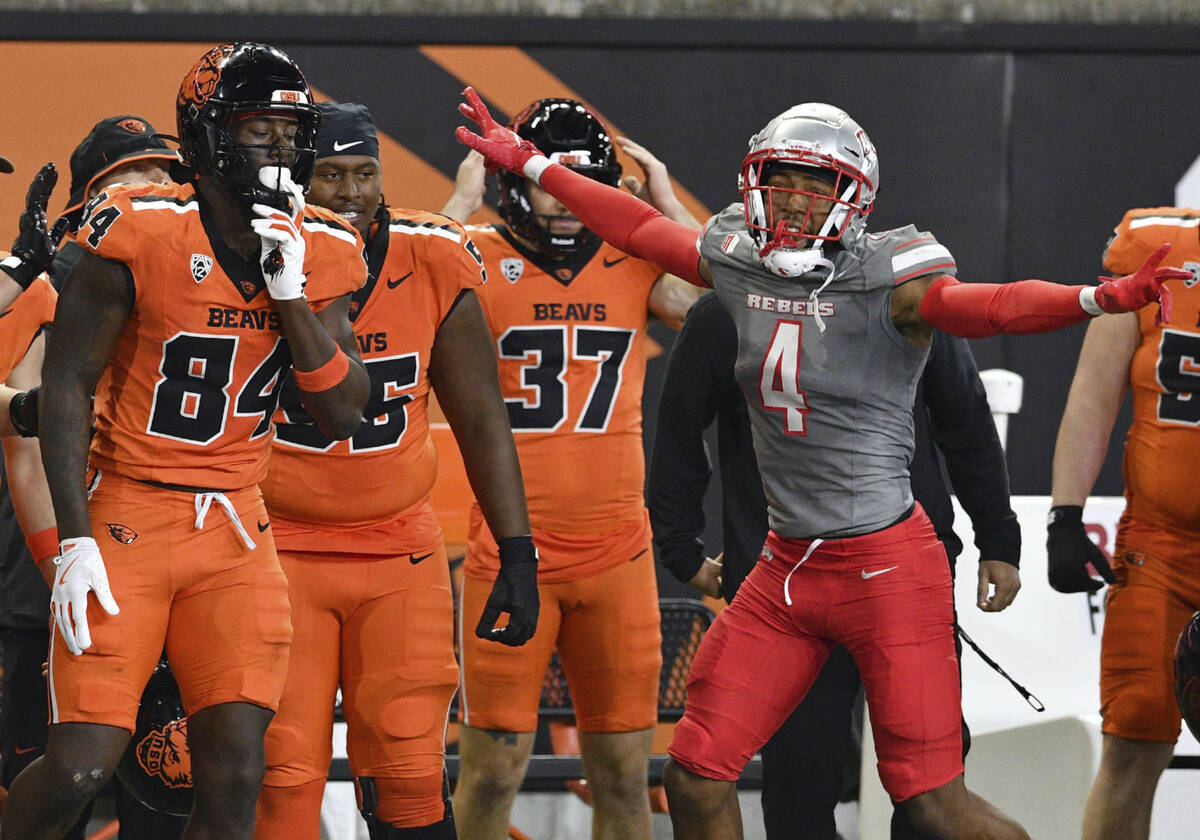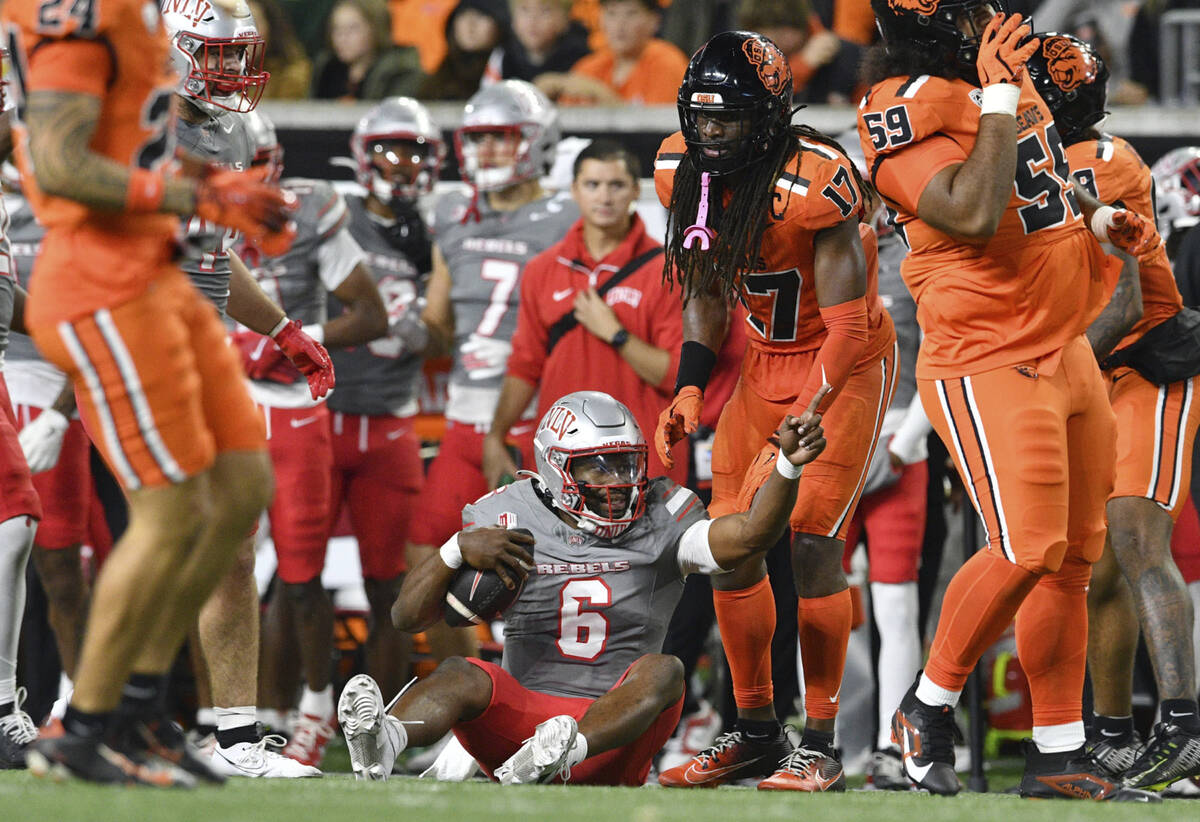Are Mountain West, Pac-12 close to a truce as deadlines approach?
Mountain West and Pac-12 officials are meeting this week with a mediator in an attempt to devise a plan for the future of both conferences.
Both sides appear motivated to reach terms on a settlement that would end multiple lawsuits and allow them to finalize a contentious split that saw five Mountain West schools leave for the Pac-12 to salvage the storied conference that was raided by the Power Four.
Time is of the essence now with hard and soft deadlines approaching.
That includes both leagues seeking new media deals, a July deadline for the Pac-12 to add at least one more full-time member to be formally recognized in 2026 and a June 1 deadline for five breakaway schools to submit formal resignation letters and a $5,000 deposit on exit fees.
There is no guarantee mediation will yield an agreement. Both leagues have reason to believe they are in the right and need favorable rulings to set themselves up with a chance to compete for the status of best conference outside the Power Four.
People familiar with the talks, which began Monday, believe there has been progress, but no deals have emerged. If the talks prove to be a dead end, the process is certain to get a lot more complicated and time-consuming.
It’s also likely to get a lot nastier.
The backstory
Here’s a simplified version of a complicated story that led to this point. It started when Oregon State and Washington State were the final two Pac-12 schools remaining after the rest of them fled in a major realignment of college sports.
The two schools planned to take the Pac-12 name and significant assets and use them as a springboard to keep the league alive.
But in the meantime, Oregon State and Washington State needed football games, so they signed a scheduling agreement with the Mountain West.
The MW, knowing it was helping to keep the Pac-12 alive and that its first targets for expansion would be Mountain West schools, agreed to incorporate Oregon State and Washington State into its football schedule in exchange for the implementation of hefty “poaching fees.”
Those would be in addition to the hefty exit fees any Mountain West school would have to pay for leaving the conference.
That’s exactly how it played out. Oregon State and Washington State scheduled a series of Mountain West football games last season and soon after announced plans to reform the Pac-12 by adding San Diego State, Boise State, Fresno State, Colorado State and Utah State.
UNLV was also targeted, but agreed to stay in the Mountain West in exchange for a huge payout from the league and a guarantee that it could move to the Big 12 without penalty should the opportunity arise.
Of course, that money was going to come from the exit and poaching fees that the Mountain West said amounted to about $145 million.
But the Pac-12 filed a federal lawsuit against the Mountain West, claiming the “poaching fees” were unenforceable and illegal because, among other reasons, the agreement was signed “under duress” because of its desperate situation.
Colorado State and Utah State filed a separate lawsuit challenging the exit fees. Boise State eventually joined that suit.
There is also an antitrust element to the case, which made the selection of a mediator who understood that element of the law even more important.
Which league is more desperate?
A merger has long been believed to be the best outcome. But the Pac-12 has been resistant largely because the original premise for the breakaway Mountain West schools was to elevate themselves from some of the league’s bottom-feeders.
Growing animosity seems to have made a merger more unlikely, but perhaps several days of mediation have cooled things. If it doesn’t happen, another solution is needed, and cases can be made that both leagues need a quicker resolution than the other.
The Pac-12 is one institution short of being recognized as an official conference when realignment becomes official for the 2026-27 academic year. The league needs some clarity so it can move forward and land a media deal.
Its ideal scenario still likely involves poaching UNLV, but that’s unlikely because the school signed a grant of rights with the Mountain West. If that’s the case, the Pac-12 needs to start exploring its options.
But would UNLV be back in play if the Mountain West gets little to no money out of the deal? Perhaps, though it probably would require the Pac-12 to also allow UNLV to leave for the Big 12 with no exit fee.
On the surface, it would seem as if the Pac-12 needs the quicker resolution. The five Mountain West schools haven’t formally left the league, and several of the final steps to formation of the new conference appear to be on hold.
But it is the Pac-12 and its proposed incoming institutions that currently hold the money. It would require action on their part to make a payment to the Mountain West. Should proceedings drag out, they would be collecting interest and could delay that process with appeals that would make it impossible for the Mountain West to pay off UNLV and Air Force, which also accepted a large payment to stay.
What would then happen if the Mountain West disbursements fell significantly short of promised amounts?
Contact Adam Hill at ahill@reviewjournal.com. Follow @AdamHillLVRJ on X.






















